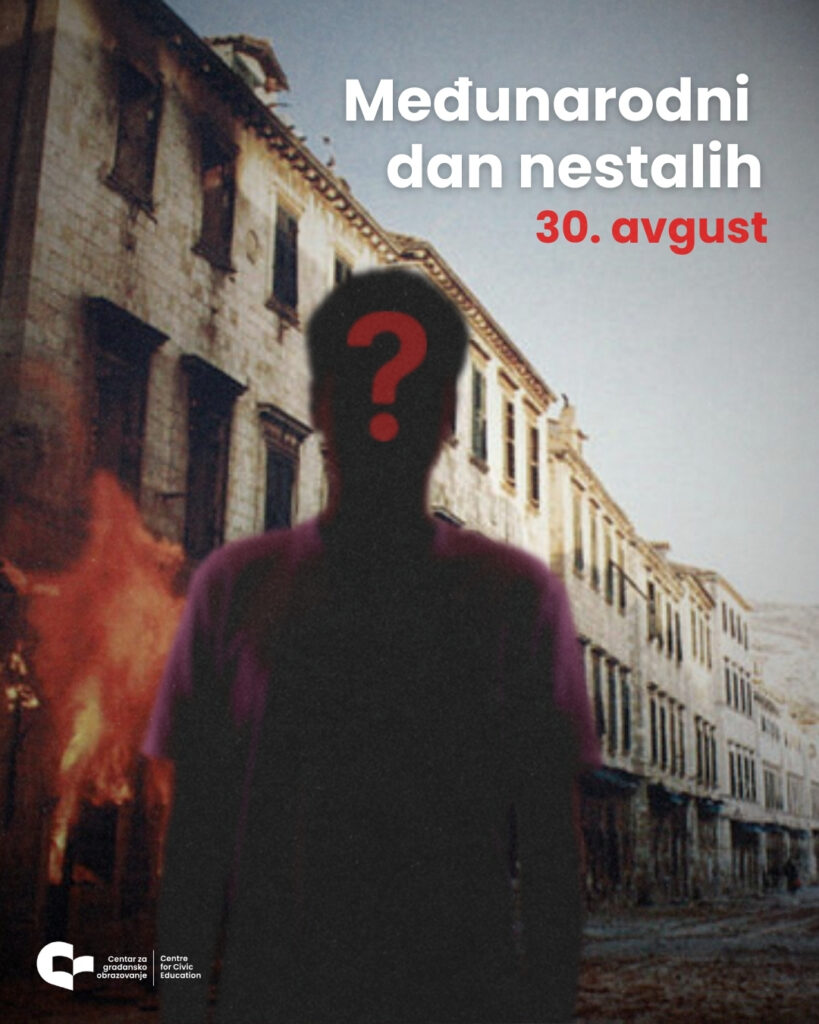On the occasion of the International Day of the Disappeared – 30 August, the Centre for Civic Education (CCE) points to the long-standing institutional passivity and the lack of political will to shed light on the fate of all persons who went missing during the wars of the 1990s in the territory of the former Yugoslavia.
According to the data of the Commission on Missing Persons of the Government of Montenegro, a total of 50 missing persons are currently being search for – 38 went missing in Kosovo, nine in Bosnia and Herzegovina and three in Croatia. Of that number, 44 are men and six are women. In the past year, the closure of one case from the previous list has been confirmed . It concerns R.Š, a civilian victim who went missing in Đakovica in Kosovo in 1999, whose mortal remains were found and identified in October 2024. The handover of the mortal remains was carried out in accordance with the Agreement on Cooperation between the Commissions on Missing Persons of Montenegro and Kosovo, signed in 2015.

One of the good practices, in some countries and regions, is the maintenance of a register in which, with the consent of families, personal data, a detailed description at the time of disappearance, as well as photographs of the missing persons are published. This model facilitates identification, but also increases the chances of obtaining new information from citizens and witnesses who may have useful data. The introduction of a similar register in Montenegro would significantly improve the existing mechanisms and accelerate the resolution of cases.
Although certain steps have been made, the process still requires stronger regional cooperation, consistent institutional commitment and clear political will. Resolving the fate of the missing remains a moral and legal obligation of the successor states of the former Yugoslavia, including Montenegro – not only towards the families of the victims, but also for the preservation of regional stability and reconciliation.
CCE joins the call of the Humanitarian Law Center, Documenta, UDIK and the Humanitarian Law Centre Kosovo, on behalf of the RECOM Reconciliation Network, for the governments of the post-Yugoslav countries to, without delay, activate the existing mechanisms and enable the families to have a grave for their loved ones, a place of mourning and remembrance that will become part of the collective memory.
The International Day of the Disappeared was established on 30 August 1981 to remind of the right of families to know the truth about the fate of their relatives.
Alma Novalić, project assistant
